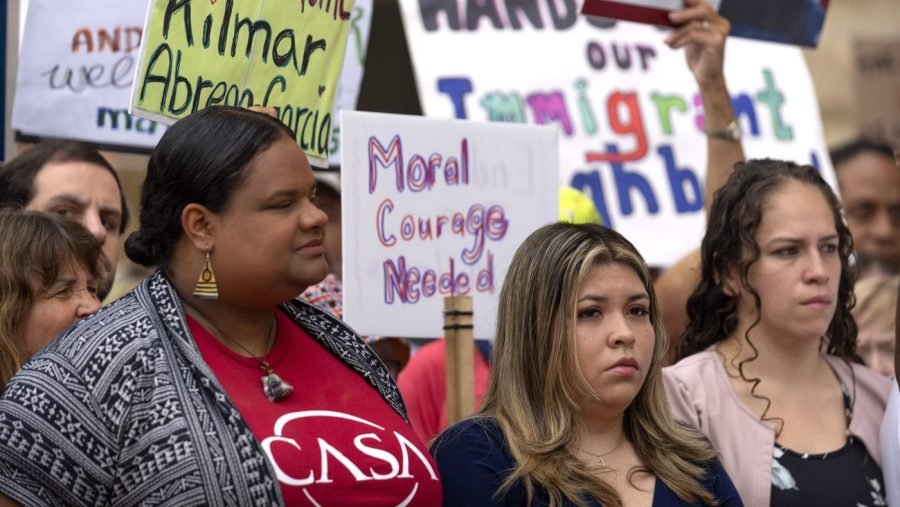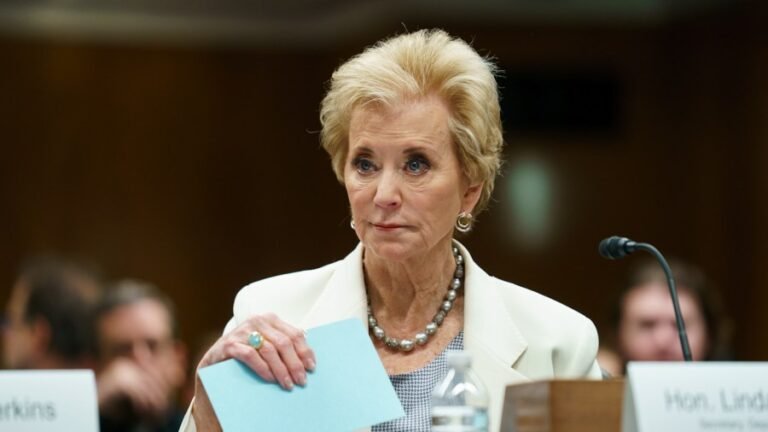
A federal judge on Monday scrutinized the Trump administration’s plan for Kilmar Abrego Garcia if he’s released from criminal custody as soon as next week, ordering the government to produce a witness to answer more questions.
“It’s like trying to nail Jell-O to a wall trying to figure out what’s going to happen next week,” U.S. District Judge Paula Xinis said.
Abrego Garcia was brought back from El Salvador last month, after drawing national attention for being mistakenly deported there in mid-March. He remains detained in Tennessee on human smuggling charges but could be released ahead of trial as soon as July 16.
At Monday’s hearing, government attorney Jonathan Guynn said in the scenario Abrego Garcia is released, he would be immediately detained by immigration authorities. Though no final decision has been made, Guynn said the current plan is to initiate proceedings to remove him to a country other than El Salvador, known as a third-country removal.
“He can be removed elsewhere,” Guynn noted, since Abrego Garcia is only protected from deportation to El Salvador. Late last month, the White House rejected the notion it would attempt a third-country removal before Abrego Garcia’s trial, calling it “fake news.”
Xinis, an appointee of former President Obama who serves in Greenbelt, Md., ordered the government to produce at least one witness with personal knowledge of the plans for a Thursday afternoon hearing.
“We need to know,” she said.
Xinis has been overseeing Abrego Garcia’s civil lawsuit filed on his behalf in March, soon after he was deported to El Salvador. A 2019 immigration court ruling had protected him from being removed there, and the administration has blamed the violation of that order on an “administrative error.”
The judge has sparred with the administration ever since over its conduct. With Abrego Garcia now in Tennessee, the administration looked to remove Xinis from the picture by arguing she has no jurisdiction and the case is moot.
But Xinis ruled Monday that the lawsuit can move forward, keeping her in the driver’s seat as Abrego Garcia’s lawyers seek to prevent his deportation and physically return him to Maryland, where he lived for more than a decade after entering the country illegally.
“Without any indication that the same conduct will not repeat itself, I cannot find that the defense has met its formidable burden,” Xinis said.
Andrew Rossman, Abrego Garcia’s attorney, warned his client could otherwise be swiftly deported in violation of his due process rights. The Supreme Court last month lifted judge-imposed limits on third country removals.
“We do need protection from the government waking up tomorrow and upon Mr. Abrego Garcia’s release from criminal custody in Tennessee deporting him to a country they haven’t even yet identified,” Rossman said.
Xinis acknowledged the administration may ultimately be able to deport Abrego Garcia to a third country or look to wipe the original ruling protecting him from deportation to El Salvador. But Monday’s hearing still turned heated at times, particularly when the judge questioned whether Abrego Garcia’s indictment was part of the negotiations to get him out of El Salvador.
Government attorney Bridget O’Hickey acknowledged it was happening “in tandem” but insisted “he was not indicted with the purpose of bringing him back.”
O’Hickey is a new member of the government’s legal team who joined the Justice Department in May. She became the latest attorney to take a grilling from Xinis, who at one point suggested O’Hickey contradicted testimony the government provided in Tennessee.
There, the government indicated the criminal investigation into Abrego Garcia began April 28, weeks after the Supreme Court mandated officials “facilitate” his return. But O’Hickey suggested it began earlier.
“Now, I have real concerns, as if I haven’t for the last three months,” Xinis quipped.
Eventually, O’Hickey said she was “unfamiliar with the timeline” and wasn’t contradicting the earlier testimony.






